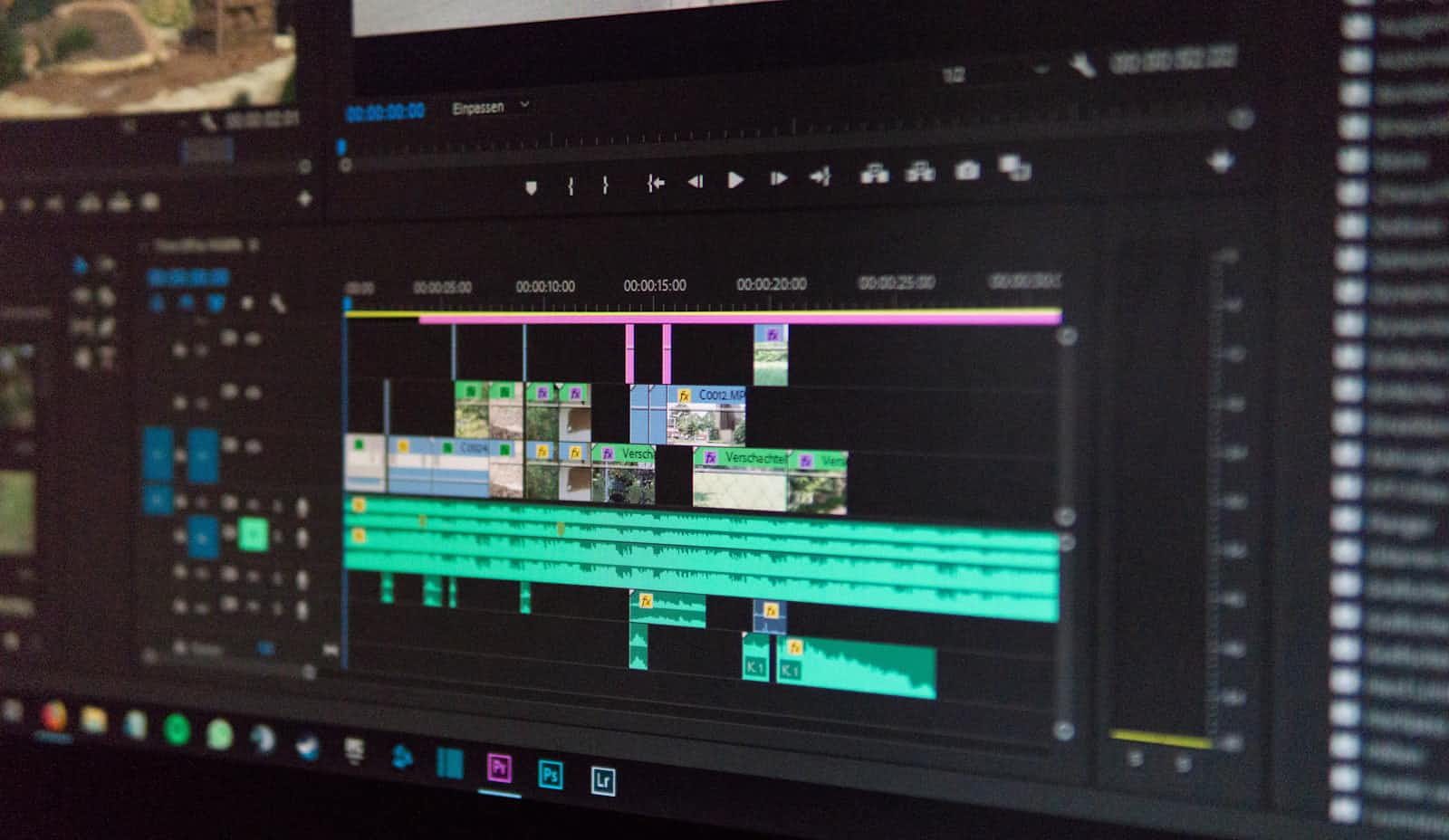Evaluating Laptop Performance: The Best Configurations for Gaming, 3D Modeling, and Video Editing
 Shubhajit Mondal
Shubhajit Mondal
1. Low-Quality Laptop: 8GB RAM, Intel Integrated UHD Graphics, Intel N4020 Processor
GTA V: Not Recommended. The system is far below the minimum requirements for GTA V.
Blender: Not Recommended. Severe limitations in rendering and real-time modeling.
Shotcut, Clipchamp, Videograbber, Lightworks: Barely Usable for basic editing with lower resolution and minimal effects.
Premiere Pro, After Effects, DaVinci Resolve: Not Recommended. These programs require more powerful hardware.
Filmora, CyberLink, Movavi: Barely Usable for simple edits, but expect slow performance.
2. Laptop: 8GB RAM, i3 11th/12th Gen, Intel Integrated UHD Graphics
GTA V: Low Performance. Playable at the lowest settings, but not recommended for a good experience.
Blender: Basic Usability. Light modeling and low-poly projects only.
Shotcut, Clipchamp, Videograbber, Lightworks: Usable for basic editing, but with some lag.
Premiere Pro, After Effects, DaVinci Resolve: Not Recommended. The software will run slowly, especially with complex projects.
Filmora, CyberLink, Movavi: Usable for basic editing, but performance will be limited.
3. Laptop: 8GB RAM, i3 11th/12th Gen, Intel Iris Xe
GTA V: Moderate Performance. Playable at low to medium settings.
Blender: Moderate Usability. Handles light to moderate modeling projects.
Shotcut, Clipchamp, Videograbber, Lightworks: Usable with moderate performance.
Premiere Pro, After Effects, DaVinci Resolve: Limited Usability. Suitable for basic to moderate projects with some lag.
Filmora, CyberLink, Movavi: Usable with moderate performance, better than with UHD graphics.
4. Laptop: i5 11th/12th Gen, 8GB RAM, Intel Iris Xe
GTA V: Moderate Performance. Playable at medium settings.
Blender: Moderate Usability. Handles moderate projects; complex renders will be slow.
Shotcut, Clipchamp, Videograbber, Lightworks: Usable with good performance for basic to moderate editing.
Premiere Pro, After Effects, DaVinci Resolve: Moderate Usability. Handles basic to moderate editing with some performance limitations.
Filmora, CyberLink, Movavi: Good Performance. Suitable for most editing tasks.
5. Laptop: i5 11th/12th Gen, 16GB RAM, Intel Iris Xe
GTA V: Moderate to Good Performance. Playable at medium to high settings.
Blender: Good Usability. Handles moderate to complex projects with decent performance.
Shotcut, Clipchamp, Videograbber, Lightworks: Good Performance for most tasks.
Premiere Pro, After Effects, DaVinci Resolve: Usable for moderate projects, but complex projects may show limitations.
Filmora, CyberLink, Movavi: Very Good Performance. Handles most editing tasks smoothly.
6. Laptop: i5 12th Gen or AMD Ryzen 5 5500H, 8GB RAM, 4GB NVIDIA GeForce RTX 2050
GTA V: Good Performance. Playable at medium to high settings.
Blender: Good Usability. Handles complex projects, but RAM may limit performance in very large scenes.
Shotcut, Clipchamp, Videograbber, Lightworks: Good Performance for most tasks.
Premiere Pro, After Effects, DaVinci Resolve: Good Usability. Handles most projects, but heavy multitasking might show limitations.
Filmora, CyberLink, Movavi: Very Good Performance. Smooth performance for most editing tasks.
7. Laptop: i5 11th Gen, 16GB RAM, 4GB NVIDIA GeForce RTX 2050
GTA V: Very Good Performance. Playable at high settings.
Blender: Very Good Usability. Handles complex projects with good performance.
Shotcut, Clipchamp, Videograbber, Lightworks: Very Good Performance for all tasks.
Premiere Pro, After Effects, DaVinci Resolve: Very Good Usability. Handles complex projects smoothly.
Filmora, CyberLink, Movavi: Excellent Performance. Suitable for all editing tasks with fast processing.
8. Laptop: i5 12th Gen, 16GB RAM, 4GB NVIDIA GeForce RTX 3050
GTA V: Excellent Performance. Playable at very high settings.
Blender: Excellent Usability. Handles very complex projects with ease.
Shotcut, Clipchamp, Videograbber, Lightworks: Excellent Performance for all tasks.
Premiere Pro, After Effects, DaVinci Resolve: Excellent Usability. Smooth performance with complex projects.
Filmora, CyberLink, Movavi: Excellent Performance. Suitable for all editing tasks.
9. Laptop: i5 13th Gen, 16GB RAM, 6GB NVIDIA GeForce RTX 4050
GTA V: Excellent Performance. Playable at ultra settings.
Blender: Excellent Usability. Ideal for very complex projects and high-resolution rendering.
Shotcut, Clipchamp, Videograbber, Lightworks: Excellent Performance for all tasks.
Premiere Pro, After Effects, DaVinci Resolve: Excellent Usability. Handles everything from 4K editing to complex visual effects.
Filmora, CyberLink, Movavi: Top-Tier Performance. Suitable for all editing tasks with exceptional speed.
10. Laptop: i7 13th Gen, 16GB RAM, 8GB NVIDIA GeForce RTX 4060
GTA V: Top-Tier Performance. Playable at ultra settings with very high frame rates.
Blender: Top-Tier Usability. Suitable for professional-level 3D modeling, rendering, and animation.
Shotcut, Clipchamp, Videograbber, Lightworks: Top-Tier Performance for all tasks.
Premiere Pro, After Effects, DaVinci Resolve: Top-Tier Usability. Perfect for professional-level video editing, VFX, and 3D compositing.
Filmora, CyberLink, Movavi: Top-Tier Performance. Fast and responsive for all editing needs.
Summary of Recommendations:
Low-Quality Laptop: Not recommended for demanding tasks.
i3 with UHD Graphics: Suitable only for basic tasks with limited performance.
i3/i5 with Iris Xe: Good for moderate tasks, including light gaming and basic to moderate editing.
i5 with RTX 2050: Good for gaming and all but the most demanding editing tasks.
i5 with RTX 3050 or better: Excellent for gaming, 3D modeling, and video editing, including 4K and complex VFX.
i7 with RTX 4060: Top-tier performance for professional-level work across all tasks.
This breakdown should help you decide on the best laptop configuration for your needs, depending on the software you plan to use.
Storage Recommendations:
For all configurations, 512GB SSD is a good starting point. It provides:
Sufficient Space: Adequate for most gaming, 3D modeling, and video editing needs with moderate file sizes.
Performance: Faster load times and responsiveness compared to HDDs.
However, if you anticipate working with large files or multiple projects, you may benefit from a larger SSD, such as 1TB SSD, to ensure you have ample space and maintain optimal performance over time.
When considering storage for different use cases, here are the minimum recommended storage capacities:
Basic Use (Low-Quality Laptops, i3 with UHD Graphics):
Minimum Storage: 256GB SSD
Recommendation: 512GB SSD for smoother performance, especially for video editing.
Moderate Use (i3/i5 with Intel Iris Xe):
Minimum Storage: 512GB SSD
Recommendation: 1TB SSD if working with larger files or multiple software.
Advanced Use (i5 with RTX 2050/3050 or better):
Minimum Storage: 512GB SSD or 1TB SSD
Recommendation: 1TB SSD for ample space and faster load times.
Professional Use (i5/i7 with RTX 4050/4060):
Minimum Storage: 1TB SSD
Recommendation: 2TB NVMe SSD for optimal performance, especially for 4K video editing and large 3D projects.
Subscribe to my newsletter
Read articles from Shubhajit Mondal directly inside your inbox. Subscribe to the newsletter, and don't miss out.
Written by

Shubhajit Mondal
Shubhajit Mondal
while (alive) { eat(); sleep(); code(); repeat(); }